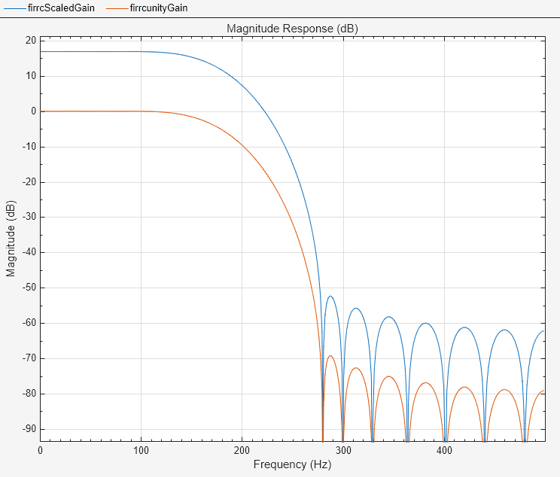toMultirate
Create multirate filter System object from digital FIR filter object
Since R2025a
Description
multiFiltObj = toMultirate(digiFiltObj,Name=Value)digitalFilter object based on the properties
you specify using one or more name-value arguments. For example, multiFiltObj =
toMultirate(digitFiltObj,InterpolationFactor=7,DecimationFactor=3) creates a
dsp.FIRRateConverter object with an interpolation factor of 7 and a decimation
factor of 3 using the filter coefficients from the digiFiltObj
object.
Examples
Input Arguments
Name-Value Arguments
Output Arguments
Version History
Introduced in R2025a
